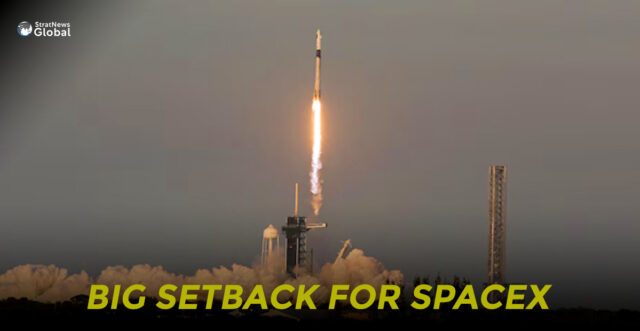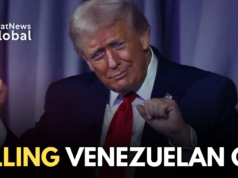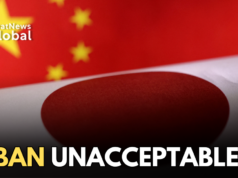While negotiating a deal with the Bahamas last year to permit Falcon 9 rocket booster landings in its territory, Elon Musk’s SpaceX offered an incentive: free Starlink internet terminals for the nation’s defence vessels, according to three individuals familiar with the discussions.
The rocket landing deal, unlocking a more efficient path to space for SpaceX’s reusable Falcon 9, was then signed in February last year by Deputy Prime Minister Chester Cooper, who bypassed consultation with several other key government ministers, one of the sources and another person familiar with the talks said.
Reuters could not determine the dollar value of the Starlink arrangement or the number of vessels outfitted with Starlink terminals. The Bahamian military, mostly a sea-faring force with a fleet of roughly a dozen vessels, did not respond to a request for comment.
Reuters found no evidence that Cooper broke any laws or regulations in striking the deal with SpaceX, but the people said the quick approval created tension within the Bahamian government.
By this April, two months after the first and only Falcon 9 booster landed off the nation’s Exuma coast, the Bahamas announced it had put the landing agreement on hold. The government said publicly it wanted a post-launch investigation after the explosion in March of a different SpaceX rocket, Starship, whose mid-flight failure sent hundreds of pieces of debris washing ashore on Bahamian islands.
But the suspension was the result of the blindsided officials’ frustration as well, two of the people said.
“While no toxic materials were detected and no significant environmental impact was reported, the incident prompted a reevaluation of our engagement with SpaceX,” Cooper, also the country’s tourism chief, told Reuters through a spokesperson.
SpaceX did not respond to questions for comment. Cooper and the prime minister’s office did not respond to questions about how the rocket landing deal was arranged.
SpaceX’s setbacks in the Bahamas – detailed in this story for the first time – offer a rare glimpse into its fragile diplomacy with foreign governments.
As the company races to expand its dominant space business, it must navigate the geopolitical complexities of a high-stakes, global operation involving advanced satellites and orbital-class rockets – some prone to explosive failure – flying over or near sovereign territories.
These political risks were laid bare last month when Mexican President Claudia Sheinbaum said her government was considering taking legal action against SpaceX over “contamination” related to Starship launches from Starbase, the company’s rocket site in Texas, 2 miles north of the Mexican border.
Her comments came after a Starship rocket exploded into a giant fireball earlier this month on a test stand at Starbase. Responding to Sheinbaum on X, SpaceX said its teams have been hindered from recovering Starship debris that landed in Mexican territory.
Mission To Mars
SpaceX is pursuing aggressive global expansion as Musk, its CEO, has become a polarising figure on the world stage, especially following high-profile clashes with several governments during his time advising President Donald Trump. More recently, he has fallen out with Trump himself.
Starlink, SpaceX’s fast-growing satellite internet venture, is a central source of revenue funding Musk’s vision to send human missions to Mars aboard Starship. But to scale globally, SpaceX must continue to win the trust of foreign governments with which it wishes to operate the service, as rivals from China and companies like Jeff Bezos’ Amazon ramp up competing satellite networks.
The company’s talks with Bahamian officials show how Starlink is also seen as a key negotiating tool for SpaceX that can help advance other parts of its business.
According to SpaceX’s orbital calculations, the Falcon 9 rocket can carry heavier payloads and more satellites to space if its booster is allowed to land in Bahamian territory. Meanwhile, Starship’s trajectory from Texas to orbit requires it to pass over Caribbean airspaces, exposing the region to potential debris if the rocket fails, as it has in all three of its test flights this year.
SpaceX’s deal with the Bahamas, the government said, also included a $1 million donation to the University of Bahamas, where the company pledged to conduct quarterly seminars on space and engineering topics. The company must pay a $100,000 fee per landing, pursuant to the country’s space regulations it enacted in preparation for the SpaceX activities.
While SpaceX made steep investments for an agreement prone to political entanglement, the Falcon 9 booster landings could resume later this summer, two Bahamian officials said.
Holding things up is the government’s examination of a SpaceX report on the booster landing’s environmental impact, as well as talks among officials to amend the country’s space reentry regulations to codify a better approval process and environmental review requirements, one of the sources said.
Arana Pyfrom, assistant director at the Bahamas’ Department of Environmental Planning and Protection, said SpaceX’s presence in the country is “polarising”. Many Bahamians, he said, have voiced concerns to the government about their safety from Starship debris and pollution to the country’s waters.
“I have no strong dislike for the exploration of space, but I do have concerns about the sovereignty of my nation’s airspace,” Pyfrom said. “The Starship explosion just strengthened opposition to make sure we could answer all these questions.”
(With inputs from Reuters)





